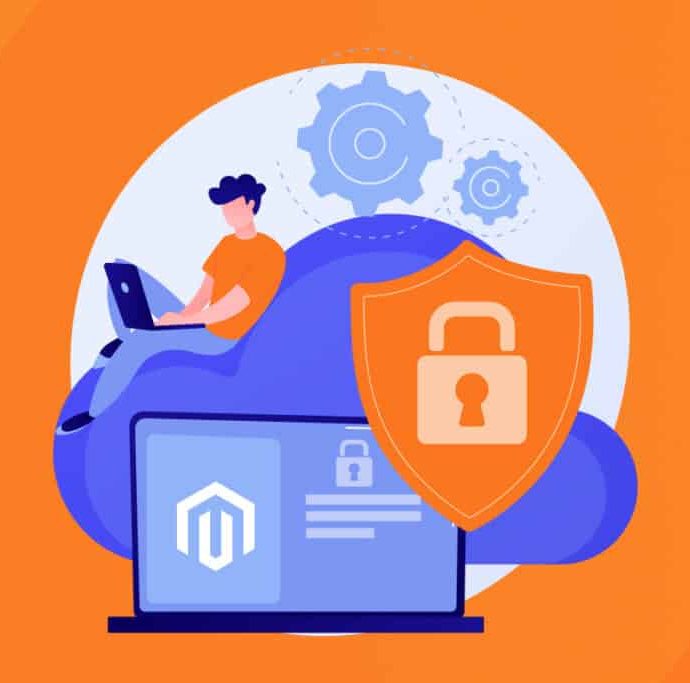Secure is safe!
Magento 2 is a powerful ecommerce platform that provides businesses with a wide range of features and functionality. One of the most important considerations when choosing an ecommerce platform is security. In this blog, we’ll explore how secure Magento 2 is and what measures it has in place to protect your business and customers.
Security Features in Magento 2:
- Encryption: Magento 2 uses industry-standard encryption to protect sensitive information, such as credit card numbers, during transmission and storage.
- Two-Factor Authentication: Magento 2 supports two-factor authentication (2FA), which adds an extra layer of security by requiring users to enter a unique code in addition to their password when logging in.
- Password Policies: Magento 2 allows administrators to enforce strong password policies, such as requiring a minimum password length, complexity, and expiration.
- PCI Compliance: Magento 2 is PCI compliant, which means it meets the Payment Card Industry Data Security Standards (PCI DSS) for handling credit card data.
- Regular Security Updates: Magento 2 releases regular security updates to address any vulnerabilities or exploits that are discovered.
- Code Audits: Magento 2 undergoes regular code audits to identify and fix any security issues.
- Restricted Access: Magento 2 allows administrators to restrict access to sensitive areas of the site to authorized users only.
- Malware Scanning: Magento 2 includes built-in malware scanning tools that can detect and remove any malicious code that may have been added to the site.
How to Improve Security in Magento 2:
While Magento 2 has many built-in security features, there are still steps you can take to further improve the security of your site. Here are some tips:
- Keep Magento 2 Up to Date: Regularly install any security patches and updates to keep your site protected against known vulnerabilities.
- Use Strong Passwords: Encourage users to use strong passwords and implement password policies to ensure compliance.
- Limit Access: Restrict access to sensitive areas of the site to authorized users only, and regularly audit user access.
- Implement SSL: Use SSL (Secure Sockets Layer) to encrypt all communication between your server and customers’ browsers.
- Use a Firewall: Use a firewall to protect your site from malicious traffic and potential hacking attempts.
Conclusion:
Magento 2 is a highly secure ecommerce platform that provides businesses with a range of built-in security features to protect against cyber threats. By implementing best practices and following security guidelines, businesses can further enhance the security of their Magento 2 site and ensure the safety of their customers’ data.



